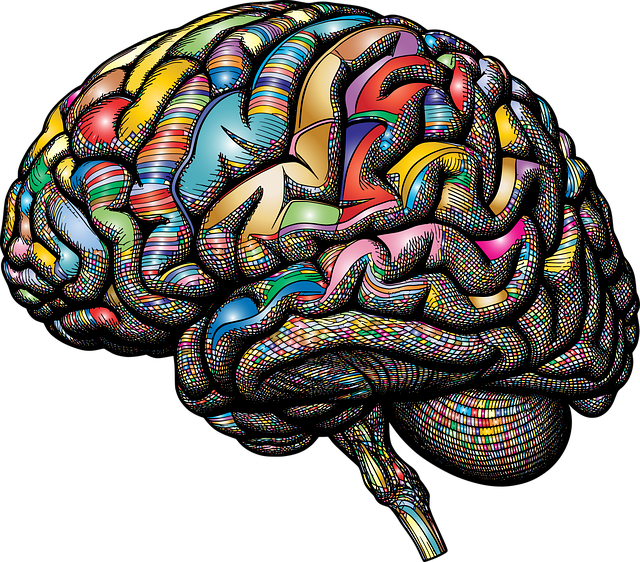Understanding mental health disorders is key to creating effective educational programs that promote wellness. In Colorado Springs, Adjustment Disorder Therapy has emerged as a powerful tool to address prevalent concerns. This therapy helps individuals manage life changes and stressful events, offering insights into emotion-behavior connections. Comprehensive Mental Health Awareness programs through activities like journaling equip people with knowledge to recognize and handle emotional healing processes. Engaging learning methods such as workshops, group discussions, role-playing, and public awareness campaign development ensure participants gain practical skills for emotional well-being management. Community partnerships with schools, faith groups, and cultural centers build trust and encourage participation in accessible programs like in-person workshops, online webinars, and mobile resources. Integrating evidence-based practices empowers individuals and fosters a supportive network, promoting community resilience. Evaluating program impact through structured pre- and post-therapy assessments and risk management planning ensures continuous improvement.
Mental health education programs play a pivotal role in fostering well-being. This article explores the design of such programs, focusing on Colorado Springs as a case study. We begin by understanding mental health disorders, emphasizing the importance of early intervention. Next, we delve into curriculum design, highlighting strategies to create engaging content. Implementation in diverse communities is key; we discuss reaching and supporting residents in Colorado Springs through innovative approaches. Finally, evaluation metrics are presented to measure the success of adjustment disorder therapy programs, ensuring continuous improvement.
- Understanding Mental Health Disorders: A Foundation for Education
- Designing an Engaging and Comprehensive Curriculum
- Implementation Strategies: Reaching and Supporting Diverse Communities in Colorado Springs
- Evaluating Impact: Measuring Success and Continuous Improvement in Adjustment Disorder Therapy Programs
Understanding Mental Health Disorders: A Foundation for Education

Understanding mental health disorders is a fundamental step in designing effective educational programs aimed at fostering mental wellness. In Colorado Springs and beyond, Adjustment Disorder Therapy has emerged as a vital tool to address prevalent mental health concerns. This specific therapy focuses on helping individuals cope with significant life changes or stressful events, offering valuable insights into the complex interplay of emotions and behaviors.
By providing comprehensive Mental Health Awareness, programs can equips individuals with the knowledge to recognize and manage their emotional healing processes. Encouraging open discussions around mental wellness through journaling exercises can be a powerful mechanism for self-reflection and personal growth. These activities not only promote understanding but also foster resilience, encouraging those facing challenges to seek support and develop healthy coping strategies.
Designing an Engaging and Comprehensive Curriculum

Designing an engaging and comprehensive curriculum for mental health education programs is a crucial step in promoting well-being and fostering supportive communities, especially in areas like Colorado Springs where addressing Adjustment Disorder Therapy is essential. These programs should aim to educate individuals about various aspects of mental health, ensuring they are equipped with the knowledge to recognize and manage their own and others’ emotional well-being.
Incorporating interactive and diverse learning methods is key to creating an appealing curriculum. This can include workshops on compassion cultivation practices, group discussions, role-playing scenarios for handling traumatic events, and even public awareness campaigns development to dispel myths surrounding mental health issues. By combining theoretical knowledge with practical exercises, participants can develop a deeper understanding of their minds and the impact of trauma support services. Such an approach not only enhances learning but also encourages empathy and builds a network of compassionate individuals ready to support each other’s mental health journeys.
Implementation Strategies: Reaching and Supporting Diverse Communities in Colorado Springs

In designing a mental health education program for diverse communities in Colorado Springs, it’s essential to implement strategies that reach and support varying populations effectively. Given the prevalence of issues like Adjustment Disorder Therapy, tailored interventions are crucial. One approach involves leveraging existing community partnerships with local schools, faith groups, and cultural centers to foster trust and encourage participation. By offering programs accessible through multiple channels, such as in-person workshops, online webinars, and mobile resources, the initiative ensures inclusivity for those who prefer different learning formats or have limited access to traditional support systems.
Additionally, integrating evidence-based practices like Social Skills Training, Crisis Intervention Guidance, and Communication Strategies into the program’s curriculum equips participants with valuable coping mechanisms and enhances their overall well-being. These strategies not only empower individuals but also create a supportive network where members can learn from each other’s experiences, fostering a sense of belonging and community resilience.
Evaluating Impact: Measuring Success and Continuous Improvement in Adjustment Disorder Therapy Programs

Evaluating the impact of Colorado Springs Adjustment Disorder Therapy programs is paramount to ensure their effectiveness and continuous improvement. Success measurement goes beyond mere participant satisfaction; it involves assessing tangible improvements in emotional well-being promotion techniques. By employing structured assessments before and after therapy, practitioners can gauge significant changes in symptoms related to stress reduction methods. This data provides insights into the program’s value and identifies areas for enhancement.
Moreover, risk management planning for mental health professionals plays a crucial role in evaluating these programs. Regular review of client outcomes enables therapists to adapt their approaches, incorporating evidence-based practices that resonate with diverse populations. Continuous improvement ensures that Colorado Springs Adjustment Disorder Therapy remains responsive to evolving needs, ultimately fostering healthier communities and more resilient individuals.
Mental health education programs, like those focused on Colorado Springs Adjustment Disorder Therapy, thrive when designed with a solid foundation of knowledge, engaging curriculum, and diverse community support. By implementing these strategies and continuously evaluating their impact, we can ensure that programs meet the unique needs of participants in Colorado Springs. Through collaborative efforts and data-driven insights, we can significantly improve mental health outcomes and foster a more supportive community environment.














